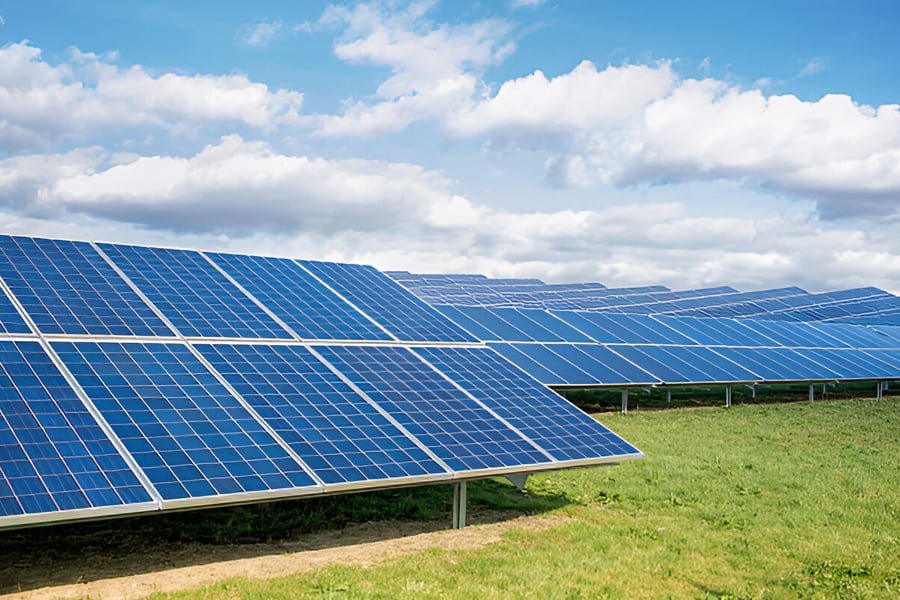Introduction
Solar energy has been gaining popularity as a sustainable and cost-effective source of energy. To harness this energy, solar panels are used. A solar panel consists of multiple individual solar cells connected in series or parallel. To create a connection,
solar tabbing wire is used.
What is Solar Tabbing Wire?
Solar tabbing wire, also known as bus wire, is a thin copper wire used to connect solar cells within a module. It is designed to facilitate the efficient transfer of electrical current between two or more cells. These wires are rugged, corrosion-resistant, and designed to withstand harsh outdoor conditions such as high temperatures and moisture.
Why is Type of Wire Important?
The type of wire used in a solar panel plays a critical role in the overall performance of the panel. Poor quality wires may result in energy losses due to high resistance, overheating, or degradation. Moreover, the selection of the appropriate wire type and size is essential to optimize the overall performance and to ensure that the module runs safely and reliably.
Different Types of Solar Tabbing Wires
There are various types of solar tabbing wires available, including solid and stranded wires, tinned and bare copper wires, and round and flat wires. The most common types of wires include 12-18-gauge wires, which are suitable for standard-sized solar panels. The choice of the right type of wire depends on various factors such as the solar panel size, environmental conditions, and safety concerns.
Bare vs. Tinned Copper Wire
Bare copper wire is used primarily in indoor solar modules since it is not resistant to corrosion. Tinned copper wire, on the other hand, has a protective layer of tin that makes it highly resistant to corrosion and oxidation, making it ideal for outdoor solar panels. Tinned copper wires are a bit more expensive than bare copper wires, but they offer better protection and longer life.
Solid vs. Stranded Wires
Solid wires are made of a single strand of copper wire, whereas stranded wires have multiple twisted strands that create a more flexible wire. Solid wires are suitable for shorter runs, whereas stranded wires are ideal for long runs and areas with high vibration. Stranded wires are costlier than solid wires, but they offer better flexibility and resistance against breakage.
Round vs. Flat Tabbing Wire
Round tabbing wire is a standard wire used in most solar panels, whereas flat tabbing wire is a new innovation in the market. Flat tabbing wires are generally used in flexible solar panels, and they come in both tinned and bare copper varieties. Flat tabbing wire is more flexible than round tabbing wire, and it can bend around corners or arcs.
Benefits of Solar Tabbing Wire
Using high-quality solar tabbing wire can help to increase the overall efficiency of the system by reducing the power loss and increasing its lifespan. Moreover, solar tabbing wire is easy to install, cost-effective, and saves a considerable amount of space when compared to traditional wiring systems. It can also handle high currents without affecting the performance of the solar cells.
Conclusion
In conclusion, the use of high-quality solar tabbing wire is essential in ensuring the efficient performance, long lifespan, and safety of your solar panel system. Careful consideration of the various types of solar tabbing wires and their properties is necessary to select the best wire type for your specific solar panel requirements.
Solar Tabbing Wire, Bus Wire, Solar Panel Connections, Copper Wire, Bare Copper Wire, Tinned Copper Wire, Solid Wires, Stranded Wires, Round Tabbing Wire, Flat Tabbing Wire
What is Solar Tabbing Wire and How it Impacts Your Solar Panel
Solar tabbing wire is an essential component for efficient power transfer within your solar panel. Learn about its types, importance and benefits in our detailed article.
Quote Inquiry
Contact us

